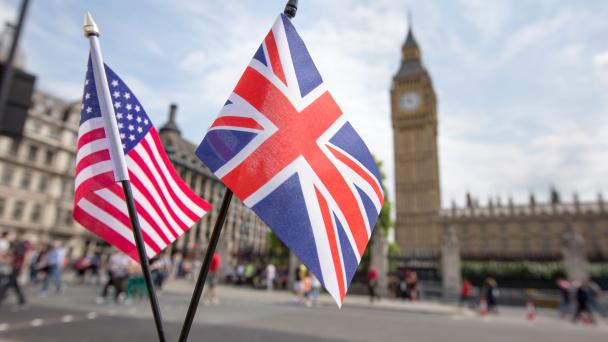Demographic Divides: What drives attitudes in the UK and US?


The British monarchy traces its origins to Anglo-Saxon times, yet public attitudes towards the institution are far from static. Since 1983, the British Social Attitudes (BSA) survey has asked people in Britain how important or unimportant they think it is for Britain to continue to have a monarchy.
Support for the monarchy has been in decline over the past decade, with the most recent BSA data revealing around half (51%) of people in Britain think that it is ‘very important’ or ‘quite important’ for Britain to continue to have a monarchy. This is the lowest figure we have recorded to date and compares with over 4 out of 5 (86%) people who said continuing to have a monarchy was important when the question was first asked in 1983.
While the proportion of people who think it is important for Britain to continue having a monarchy has declined, the proportion of those who think otherwise has steadily climbed. In 1983, one in ten (10%) held the view that it is not very or not at all important for Britain to continue having a monarchy. This has risen to around 3 in 10 (31%) in 2024. At the same time, the proportion who think that the monarchy should be abolished entirely has increased. While this is still a minority view, support for abolition since 1983 has increased by approximately 12 points (from 3% to 15% in 2024).
The decline in support for the monarchy has not been linear, with several periods of rising and falling support. For instance, there was an increase in support in 2011 and 2012, a shift which may have corresponded with major royal events. The increase in support (from 62% in 2008 to 74% in 2011 and 75% in 2012) coincided with the royal wedding between the Prince and Princess of Wales in 2011, which was watched by approximately 24 million people across BBC and ITV coverage. 2012 also saw celebrations surrounding HM The Queen Elizabeth II’s Diamond Jubilee and her participation in the 2012 London Olympics opening ceremony.
Source: British Social Attitudes, 2024
After 2012, support gradually began to decrease once again, with a marked drop between 2018 and 2021 (from 68% to 55%). The proportion of those who think it is important to continue having a monarchy did increase by 8 points in 2022 (63%), when BSA 2023 fieldwork began shortly after the death of HM The Queen Elizabeth II. Despite this change, support then recommenced its steady decline in 2023 (54%) and 2024 (51%).
For the first time in 2024, we asked a new question: Do you think the UK should continue to have a monarchy, or should it have an elected head of state instead?
This question presented an alternative to the monarchy (in this case, an elected head of state) to see if the public would prefer one constitutional settlement or another, as opposed to looking at only one in isolation. The data revealed that nearly 6 in 10 (58%) think that we should continue to have a monarchy, while nearly 4 in 10 (38%) think that we should have an elected head of state.
Source: British Social Attitudes, 2024
BSA data also reveals a generational and political divide in public opinion towards the monarchy. Around 3 in 5 younger people (aged 16-34) support replacing the monarchy with an elected head of state (59%). In comparison, around 3 in 4 older people (aged 55+) support continuation of the monarchy (76%).
Opinions appear to divide based on political affiliation, with Conservative party supporters showing a strong preference towards continuing to have a monarchy, just over 4 in 5 (82%). On the other hand, Labour supporters are evenly split between preference for a monarchy and a head of state (49% vs 48%, respectively). Meanwhile, Green (70%) supporters are strong supporters of introducing an elected head of state, which contrasts with Liberal Democrat (57%) and Reform UK (77%) supporters who prefer to continue having a monarchy.
Looking at national identity, those who identify as British (62%) or English (68%) show the strongest support for continuing to have a monarchy. In contrast, a majority of people who identify as Scottish (59%) and Welsh (64%) support an elected head of state.
Overall, the proportion of people who think Britain continuing to have a monarchy is important has steadily declined. The proportion of those who believe the monarchy is ‘not very’ or ‘not at all important’ has steadily increased – from 10% in 1983 to 31% in 2024. Support for abolition of the monarchy, while still a minority view, has also grown.
However, despite these trends, when given a choice, over half (58%) of the population prefer to continue having a monarchy over an elected head of state. Support for the monarchy is strongest among older, right-leaning individuals, while those who favour an elected head of state tend to be younger and more left-leaning.
At the same time, the Royal Family is undergoing a period of transition – from the coronation of a new monarch to changing roles amongst its members. As the British Monarchy adapts to a shifting cultural and political landscape, only time will tell how these changes shape public attitudes in years to come.
Receive a regular update, sent directly to your inbox, with a summary of our current events, research, blogs and comment.
Subscribe